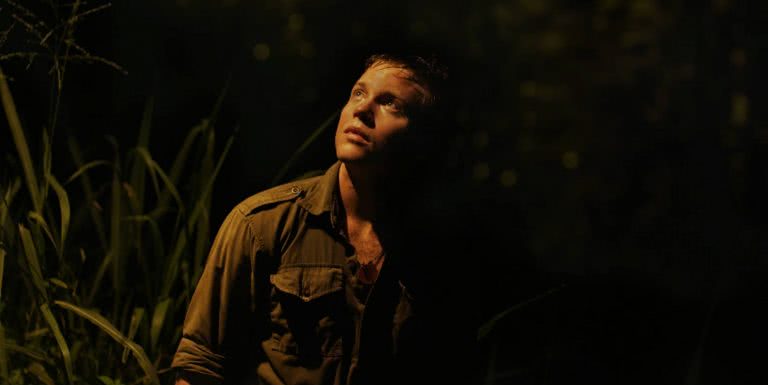Australian filmmaker Aaron Wilson’s debut feature, Canopy, is the latest and possibly best example of a genre that has become ubiquitous in only a couple of years. This genre is kind of like Survivor meets Beckett. In it, a character spends an entire film fighting to survive, and the film operates in real time – sort of.
The lead’s struggle is visceral but also affords the filmmaker the chance to muse on basic existential questions. Buried, starring Ryan Reynolds, kicked off the current trend, and last year it went viral. Gravity, All Is Lost and Captain Phillips are all members of the club. Canopy seems less gimmicky than those, perhaps because its minimalism feels more organic to its setting.
It’s Singapore, 1943. A young Australian pilot is shot down and lands among the mangroves. He’s behind enemy lines, and spends the rest of the film trying to evade the Japanese. Wilson’s film goes for 82 minutes, during which there are about three or four lines spoken, mostly in Japanese or Chinese.
Khan Chittenden plays Jim, and there’s nothing showy about his performance. Mo Tzu-Yi is Seng, the Chinese resistance fighter who Jim quite literally runs into. At this point one fears the onset of buddy-movie clichés about friendship bridging ethnic and geographical divides, but the relationship between the two is unsentimental and underplayed.
In its last third, Canopy ventures into the abstract and elliptical. The jungle is a maze from which Jim and Seng cannot escape, and its sinister beauty begins to overwhelm them. Wilson also flashes back, swiftly but pointedly, to the Australian bush where Jim grew up. The photography by Stefan Duscio immediately recalls that of John Toll on The Thin Red Line, and the film’s final image, like the rest of the film, is formally breathtaking and starkly moving. The shot’s ambiguity is spoilt slightly by the final credits, but Canopy is still a singular achievement.
4/5 stars
Canopy is in cinemas April 24.

































